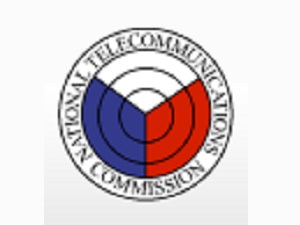
The NTC’s Quality of Service Benchmarking report for the third quarter showed leading network Smart Communications edging out rival Globe Telecom in all five service quality criteria, namely dropped and blocked calls, signal level and quality, and call set-up time.
Both networks, however, failed to meet minimum standards for dropped calls. Results for Smart showed that 2.15 percent of all calls were being cut during the call. Globe’s score was worse at 2.75 percent. Both were higher than the NTC’s minimum of 2 percent.
“The NTC has already informed Globe and Smart regarding the results. Their attention was called with regard to their failure to comply with the industry-accepted standard in dropped call rate,” the regulator said in a statement.
In the area of blocked calls, results for Smart showed 2.54 percent of all calls failing to connect on the first dial, well within the government’s 4-percent floor.
Globe was slightly behind with a score of 2.75 percent but still within required levels.
For signal level, referring to the number of signal bars on a mobile phone during a call, Smart scored an average score -61.14 dBm while Globe’s score was at -69.1 dBm. Both scores were better than the NTC’s minimum -85 dBm, but the NTC, in its remarks, said “Smart had an edge over Globe.”
Both companies also passed in the area of signal quality, which measured the quality of voice transmissions during calls, Smart registered a score of 0.65 while Globe registered a score of 1.03. Both scores were within the acceptable range of between 0 and 4, with scores closer to 0 being better.
For call set-up times, or the time between when a number is dialed and for the other line to start ringing, both companies scored within satisfactory levels. Smart’s average set-up time was 11.23 seconds, slightly better than Globe’s 11.56 percent. Both were under the 14-second requirement.
Tests were done during the month of September in random areas nationwide. A total of 2,189 calls were made using postpaid accounts. A similar benchmarking test was done for the second quarter, but that covered collected over three months, using prepaid accounts.
Tests did not cover services under “unlimited” promos because the government does not require any minimum standards for discounted calls or texts.
NTC common carriers authorization director Edgardo Cabarios admitted that the second and third quarter tests were not comparable given the differences in testing times. He said companies also prioritized postpaid over prepaid accounts in terms of service quality.
Cabarios said both firms would be given until Monday next week to explain why they should not be penalized for failing in the area of dropped calls.
“Possible penalties include a fine of P200 per day, or we could bar them from accepting new subscribers,” Cabarios said. In extreme cases, he said the NTC could cancel the franchises of non-compliant companies, but added that this would not be feasible because this would penalize subscribers more than networks.
He also admitted that a fine of P200 per day was a mere drop in the bucket for telcos that earn billions of pesos every year.
Reacting to the news, Smart said its “5-0” score over Globe was proof that subscribers were better off being on the bigger network. “We are able to deliver superior voice, text, and data services even though we have the larger subscriber base,” Smart spokesperson Ramon Isberto said, even though the second and third quarter tests covered only voice calls. Globe officials could not be reached, as of press time.

